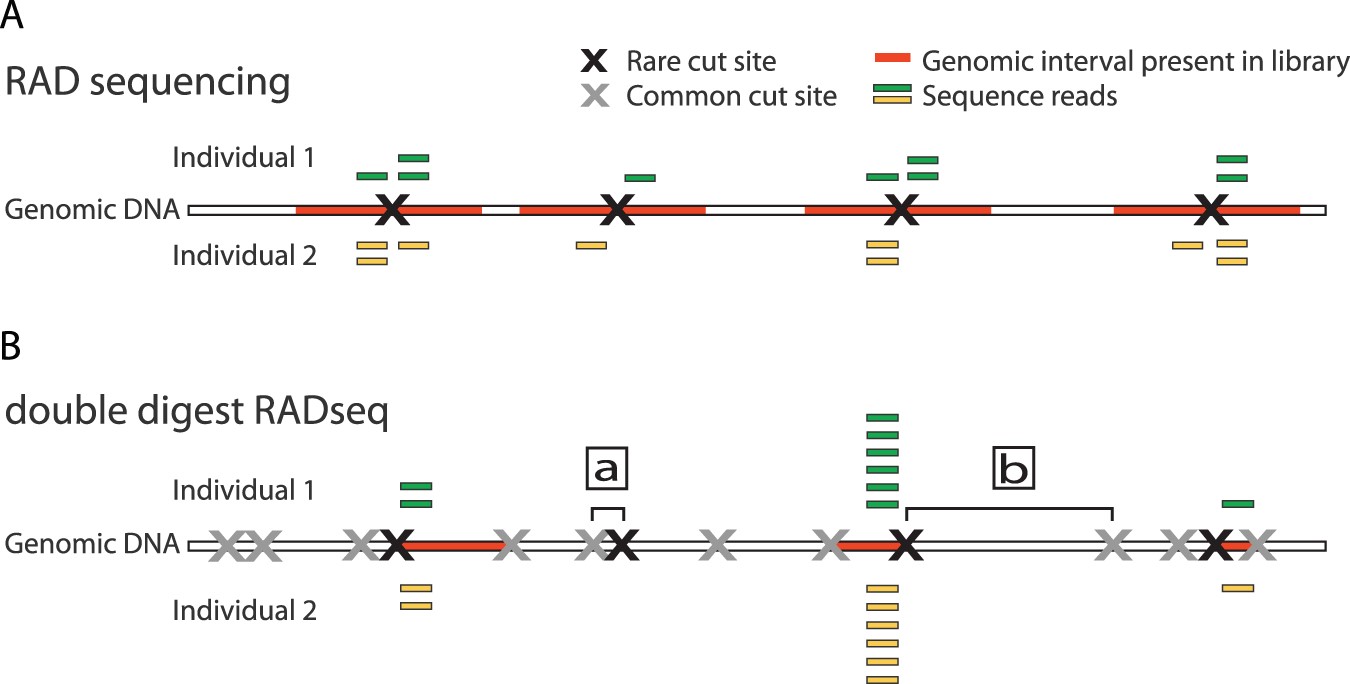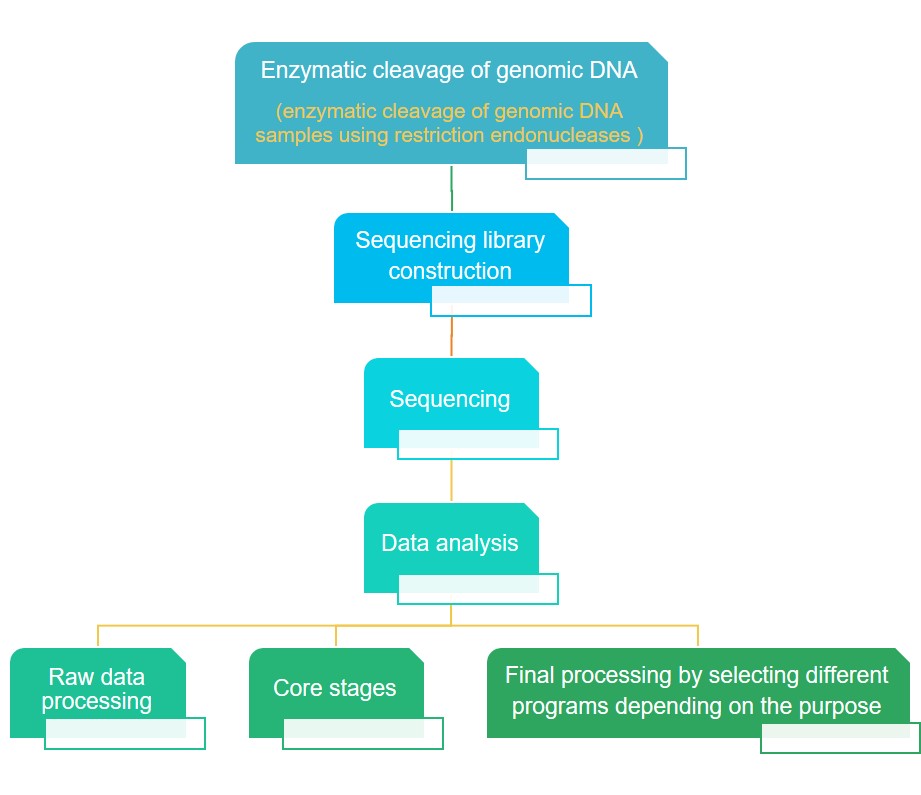Reduced-representation sequencing is a sequencing technique developed based on second-generation sequencing that uses enzymatic cleavage, sequence capture microarray technology, or other experimental means to reduce the complexity of a species' genome and sequence-specific regions of the genome to reflect partial genomic sequence-structure information. They can be divided into Complexity reduction of polymorphic sequences (CRoPS), Restriction-site associated DNA (RAD) sequencing, and Genotyping by sequencing (GBS).
 Figure 1. Comparison of RAD-seq and double digest RAD-seq. (Peterson BK, et al. 2012)
Figure 1. Comparison of RAD-seq and double digest RAD-seq. (Peterson BK, et al. 2012)
The most widely used technology is RAD-seq, which uses restriction endonucleases to cleave the genome, generate fragments of a certain size, construct sequencing libraries, and perform high-throughput sequencing of the RAD markers generated after cleavage. Since RAD markers are genome-wide DNA tags presenting small fragments near specific digestion sites, representing the sequence characteristics of the whole genome, thousands of single nucleotide polymorphic markers can be obtained in most organisms by sequencing RAD markers.
Lifeasible is one of the few biotech companies offering RAD-seq technology services. Our comprehensive biomarker analysis development platform allows us to cover all aspects of plant research. Our experienced experts provide total RAD-seq technology solutions to researchers worldwide, with a one-stop-shop to solve all your project problems.

RAD sequencing based on RAD markers is a technology that can be applied in both model and non-model organisms. This means that RAD can be used in many botanical research directions. For example, to identify specific target genes from extended genomes, to establish complete genetic linkage maps of the model or non-model organisms, to perform high-density genetic mapping, and to localize the genomes of unknown species.
This technical service supports genetic analysis of non-model organisms. Besides, we offer extended service offerings including Double digest RAD (ddRAD) sequencing and IIB digest RAD (2b-RAD) technology developed on single digest RAD-seq technology. Our proven platform supports the development of high-throughput SNP markers to meet different research needs.

Lifeasible offers complete, professional RAD-seq technology service, as well as customized experimental protocols based on your project requirements and plant sample characteristics. For more information, please contact our staff.
Reference: